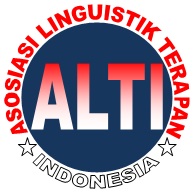Character Education in the Novel Raksasa dari Jogja and Its Implementation Design in Learning
DOI:
https://doi.org/10.46961/mediasi.v3i3.467Keywords:
Character Value, Novel, Raksasa dari Jogja,Abstract
This research purposes at finding the values of the character in the novel “Raksasa dari Jogja” and its design for the implementation of the value of character education in the learning of high school students in class XII. The method used is descriptive qualitative with data in the form of quote words and sentences containing character values with the data source in the form of the novel “Raksasa dari Jogja” by Dwitasari. The results showed that the novel “Raksasa dari Jogja” contains five-character values in the form of religious values (firm stance & sincerity); nationalist character values (maintaining the nation's culture, & love for the homeland); independence values (courage, fighting power, hard work, resilience, & lifelong learning); gotong royong values (non-violence & help); and integrity values (responsibility and example). Implementation in learning is adjusted to the basic competencies 3.3 and 4.3 for senior high school class XII.
References
Aminudin. (2009). Pengantar Apresiasi Karya Sastra. Bandung: Sinar Baru Algesindo.
Dwitasari. (2012). Raksasa dari Jogja. Yogyakarta: PlotPoint Publishing (PT Bentang Pustaka).
Endraswara, S. (2004). Metodologi Penelitian Sastra. Yogyakarta: Pustaka Widyatama.
Ismawati, E. (2013). Pengajaran Sastra. Yogyakarta: Ombak.
Kementerian Pendidikan Nasional. (2010). Pengembangan Pendidikan Budaya dan Karakter Bangsa Pedoman Sekolah. Jakarta: Badan Penelitian dan Pengembangan.
Mangunwijaya, Y.B. (1988). Wastu Citra. Jakarta. PT. Gramedia
Moleong, L. (2010). Metodologi Penelitian Kualitatif. Bandung: Remaja Karya.
Nurgiyantoro, B. (2013). Teori Pengkajian Fiksi. Yogyakarta: Gadjah Mada University Press.
Nurhayati. (2012). Pengantar Ringkas Teori Sastra. Yogyakarta: Media Perkasa
Putri, N., & Mustofa, A. (2018). Nilai Relegius dalam Novel Assalamualaikum Beijing Karya Asma Nadia dan implikasinya. Jurnal Kata (Bahasa, Sastra, dan Pembelajarannya, 1-12.
Ratna, N. K. (2010). Sastra dan Cultural Studies. Yogyakarta: Pustaka Pelajar.
Downloads
Published
How to Cite
Issue
Section
Citation Check
License
You are free to:
- Share — copy and redistribute the material in any medium or format
- Adapt — remix, transform, and build upon the material
- The licensor cannot revoke these freedoms as long as you follow the license terms.
Under the following terms: Attribution; NonCommercial; and no additional restrictions.















